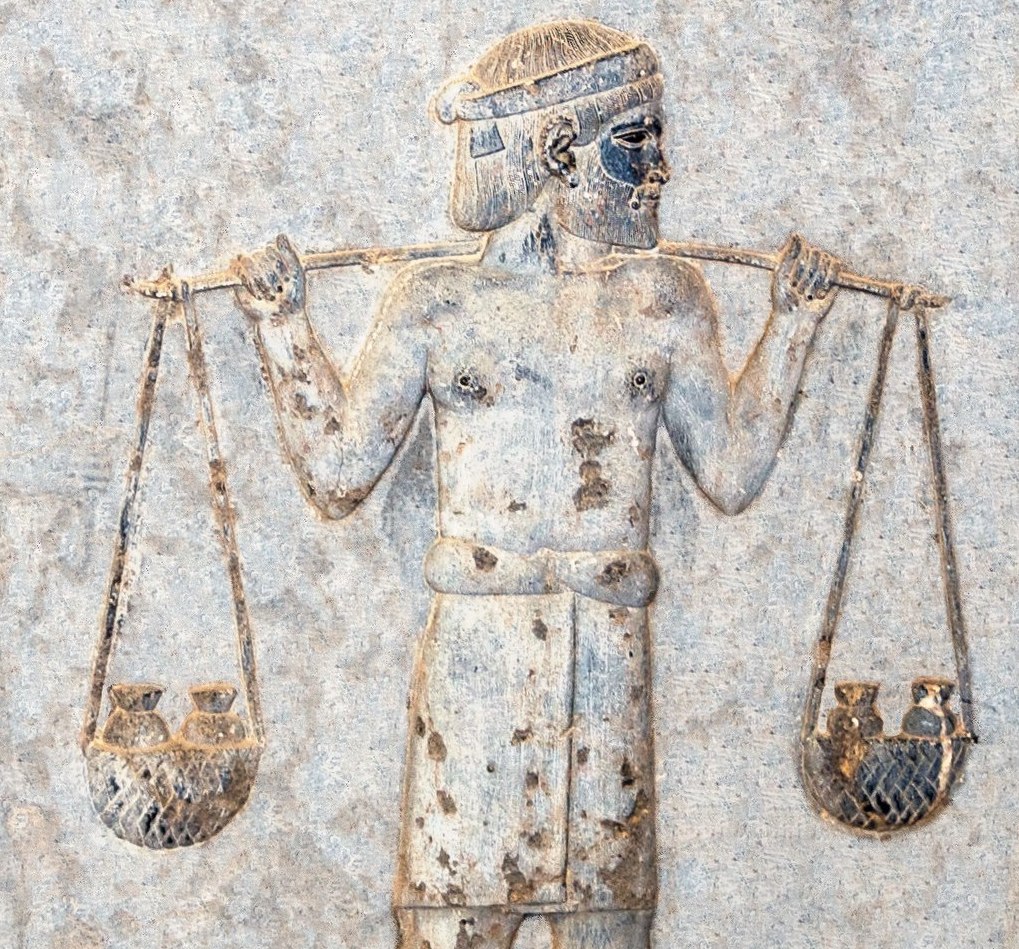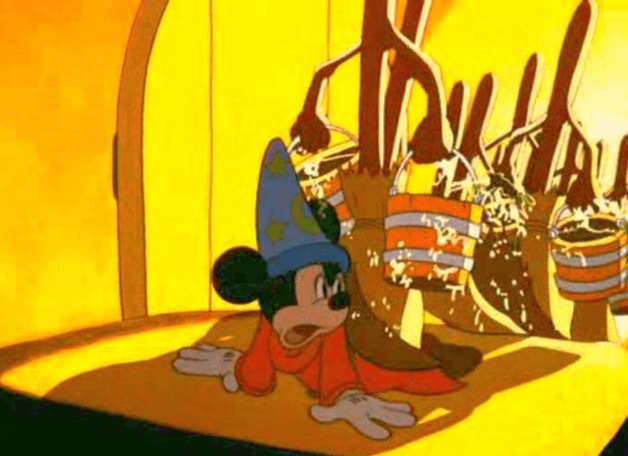It’s time to depoliticize our financial infrastructure.
A Cure for the Money Virus

A healthy currency must reflect our relationship with nature.
Two trillion dollars is the estimated cost of the fiscal stimulus bill that was passed this week by the US senate. Over the past two weeks, governments and central banks worldwide have taken the decision to combat the effects of the coronavirus by cumulatively conjuring over $10 trillion of fiscal stimulus programs, extraordinary quantitative easing policies, and emergency tax incentives. All of these programs, well-intentioned as they may seem, will ultimately have the same disastrous outcome: debasing the historically earned money owned by savers today and increasing the amount governments owe society tomorrow.
The past two decades have increasingly revealed that monetary debasement is the default policy of choice among our political and economic leaders in any crisis, from wars, to plagues, to banking failures. This is a condition we can diagnose as the money virus. Its presence can be detected if its host exhibits the following symptoms: (1) a refusal to engage in intellectual discourse surrounding the role of money, nature, and human cooperation in the modern age; (2) the belief that money is a contrivance by which man can master nature; and (3) the disregard for the natural order intrinsic to the external world, from crop yields, to harvest cycles, to geological scarcity, to time and energy.
Put simply, our leaders do not have a philosophy of money. Instead, they rely upon projections of economic trends and statistical models that reside in abstract thought rather than reality. This causes our leaders to make rash and arbitrary decisions, from shutting down economies to capriciously declaring what constitutes an “essential business.” They believe that as long as we stay home and they print enough money, nature will magically provide the vitality upon which we are all dependent.
In all of this, what we see in those who are infected with the money virus is a lack of understanding and appreciation for the innate relationship between man and nature which is the ineluctable guiding force of all human cooperation.
I want to propose a cure to the money virus by advancing a philosophy of money which reveals the mysterious synergy between money, man, and nature for those who seek a return to natural meritocracy. By meritocracy I do not refer to a form of government or hierarchical organization of society, but to a system in which one is compensated and rewarded for work that provides value to others in a cooperative system. Our confused, modern understanding of money results in a parasitic relationship between man and the natural world. To establish real social equity and collective prosperity, we must re-establish what money truly is and how it must properly function.
The Economy of Nature
In contemporary economic theory, an abstract “division of labor” and subjectively measured “aggregate demand” are taken as the lodestars of prosperity. Such theories disregard the existential time-dependency of all cooperators within a non-clannish cooperative system upon the products of the primary cooperative, namely, upon metabolic energy foods and fuels. Simply put: not all products are created equal. Herein lie the natural limitations of such economic giants as John Maynard Keynes and Adam Smith: You can survive for a long time without bicycles and high art, but no civilization can survive at all without food.
My understanding of money is simple: the natural world, human cooperation, and the financial world are one and the same, as inextricably interconnected now as they have been since the dawn of human civilization. An economy is a human cooperative system, and the invisible thread tethering the natural world to the human cooperative is a self-evident system of natural laws.
Chief among these natural laws is the omnipresent tension between energy and entropy on the one hand, and natural scarcity on the other. These forces perpetually govern the world within the irreversible, forward-moving flow of time. As a thermodynamic system, the fundamental currency of the natural order in time is metabolic energy in the form of foods and fuels which are corporeal and ephemeral. Metabolic energy is the source of all life, work, and movement; it can only be produced by human agents who negotiate directly with nature in order to generate and conserve a surplus beyond their immediate needs for survival.
All human action takes place in the objective present: the continuous “now” in which we perceive and act, common and universal to all human beings. The continuous present or “now” is explicitly objective because it unfolds within the natural order, such that any act of human agency becomes an outward reality which is met with real consequences in accordance with natural law. Time, scarcity, and thermodynamics conspire to ensure our perpetual dependence on a constant flow of metabolic energy. Foods and fuels must be continuously harvested by man in time if he is to survive.
In systems of human cooperation wherein one segment of the population engages in the production of foods and fuels beyond their individual needs (the primary cooperative), and another segment of the population engages in vocations and industries that do not produce foods and fuels (the secondary cooperative), the secondary cooperative becomes time-dependent upon the primary cooperative for the metabolic energy which makes all life and work possible.
Indeed, all members of the cooperative society, are necessarily time-dependent, meaning that there exists an immediate, inescapable, and constant requirement for the production of metabolic energy on the part of the primary cooperators, namely, the farmers. (The primary cooperative consists of both metabolic energy food and fuel producers. This includes farmers, hunters, fishers, foragers, coal miners, lumberjacks, and so on. However, for the sake of simplicity, I will often substitute the ‘farmer’ as the agent who stands for the whole host of the primary cooperative to which I refer.) The farmers, in turn, are time-dependent upon the provision of nature and their willing engagement with it in the present.
The primary and secondary cooperators are evidently both energy consumers, but there is an important distinction to be made: the secondary cooperators consume energy but do not produce it. Let us consider an example which clearly demonstrates this. Ask yourself: which industries could engage in a strike without materially impacting the collective quality of life of a human cooperative system?
A politician, for example, can strike for weeks and months (and they often do during government shutdowns), but the farmer or the electric utility employee cannot strike for more than a few days before the resilience of societal prosperity is threatened. Without metabolic energy, secondary cooperators are forced to revert to more primary forms of cooperation. This is precisely what happens during a recession.
The fact that the secondary cooperative is time-dependent upon the activity of the primary cooperative, coupled with the reality of natural scarcity, introduces observable, measurable, and predictable opportunity costs in lived time and in the expenditure of metabolic energy on the part of the primary cooperative, to which all human action remains beholden. These opportunity costs, in turn, set relations of meritorious rewards in the production, transport, and storage of foods and fuels as they diminish and must be reproduced afresh. This feature exemplifies the feedback loop between nature and mankind: from the ground, to the farmer, to the greater community, and back again.
Accordingly, prosperity for any individual or cooperative system is a state of surplus metabolic energy. The more that our cooperative activities are aligned with the natural order in time, the more resilient, sustainable, and peaceful that state of prosperity will be. The longer a state of prosperity persists, the more likely it is to result in the satisfaction of our personal desires as free-willing agents by maximizing our personal time in order to pursue meaningful recreation: the formation of a household, cultural development, spiritual enlightenment, or any other form of leisure. This satisfaction affirms the nobility of the human experience as the just, merit-based reward for one’s individual contribution of time and metabolic energy towards the achievement of collective prosperity.
If prosperity is a sustainable and resilient state of surplus metabolic energy consisting of foods and fuels, and if these ephemeral foods and fuels are produced by some, but not all, cooperators, it follows that all members of the human cooperative system are time-dependent on the continual reproduction of metabolic energy.
As we have already established, the farmer always produces the primary surplus of metabolic energy, which, under the right circumstances, may be extended to others. Therefore, if a human cooperative system is to attain and maintain prosperity, the system must incentivize the farmer to continually produce more metabolic energy than he requires for his own individual needs, such that he may share it with other members of the human cooperative system who do not themselves produce metabolic energy. As we investigate these natural and necessary circumstances, we will begin to answer the fundamental question: What is money?
Defining Money
In order to encourage the farmer to produce for the non-farmer, and for the energy fuel producer to produce for the non-energy fuel producer, a merit-based system of rewards must be maintained that equitably allocates benefits in accordance with this very law of time-dependency. Greater rewards, in turn, must be allocated to the individual cooperators who are conscientious and have an aptitude for producing more than others. This implies waking up earlier, working longer, planning better, failing less than others, and best adapting to change as the flux of the natural order unfolds.
In this way, the primary cooperator’s individual investment of time and his expenditure of metabolic energy is measured and rewarded according to the exigencies of the natural world: if he succeeds in this merit-based way, he is rewarded with a surplus from nature. Correspondingly, an earned surplus on the part of the primary cooperative is welcomed and encouraged because it provides further vitality to the thermodynamic processes at the heart of the human cooperative system. This satisfies the existential deficiency in metabolic energy on the part of the secondary cooperative who, as free-willing agents, have chosen to outsource their time-dependency upon surplus metabolic energy to others.
In clannish societies, motivation for the producers of metabolic energy to generate and maintain a surplus comes from the bonds of shared trust and propinquity which bind the clan together. The problem is that the clannish state of human cooperation cannot last forever and does not scale. As any reading of history shows, such systems of cooperation are reliant on a “coincidence of wants” that becomes increasingly unlikely as human communities grow wider and more complex. In short, trust and kinship are not viable as a currency of cooperation beyond small, familial clans, and the reliance on such social connections will restrict a society’s ability to expand into more complex and resilient modes of cooperation, thereby achieving prosperity.
Within a non-clannish human cooperative system, money must be introduced in order to neutrally measure and, thus, equitably reward the primary cooperators who produce the surpluses of metabolic energy upon which we collectively depend. Money should allow the surplus to be conveyed from the farmer to the non-farmer in a way which measures and rewards the farmer’s toil, or the metabolic energy and time that the farmer expended. Moreover, the exchange of the surplus of the primary cooperator for money should simultaneously measure, communicate, and represent the metabolic energy of the product yielded by the primary cooperator’s individual investment of time and energy in his negotiation with nature.
We have now arrived at an understanding of what money is and should be: Money is a foundational feature of the natural order that enforces a singular merit-based system of reward which ensures that a non-clannish human cooperative system is anchored to the exigencies of nature, as these are discovered and negotiated by the farmer. Money motivates independent actors from both the primary and secondary cooperative to cooperate with people they do not know, from cultures and civilizations far beyond the border of their own, thereby transcending bonds of kinship and thus ensuring that the entire collective system is oriented towards prosperity.
As it relates to this philosophy of money, balance or alignment (which is to say equipoise, peace, or harmony) with the natural order simply means that the farmer who directly engages with nature is sufficiently motivated and rewarded to continue producing a surplus of metabolic energy within the objective present. Alas, natural scarcity renders all metabolic energy, foods and fuels alike, to be ephemeral, which makes them untenable as money for any significant period of time. Sources of energy must metabolize the thermodynamic processes that depend on them; foods and fuels are either imminently consumed or decayed and therefore cannot be hoarded.
Thus, a money is required that is not metabolic energy itself, but rather embodies and outlasts metabolic energy. In other words: money must be an embodiment of metabolic energy which is naturally scarce and time-superior to any possible surplus of metabolic energy foods and fuels, no matter their quantity, origin, or kind.
Gold is Nature’s Money
Through our exposition, we can see why even today, the natural properties of gold render it the best money by which to align human agency and ambition with the laws of nature, thereby fostering sustainable, collective prosperity. The natural function of money is to neutrally measure toil and equitably reward merit within the objective present. By virtue of its natural properties, including its scarcity and physical unchangeability through time, gold is the natural exemplar of the ideals of neutrality, objectivity, and equitability which nature requires for money. Finally, gold is corporeal yet permanent, while all other metabolic energy embodiments, including foods and fuels, are corporeal yet ephemeral.
As such, real, tangible gold money fosters a natural merit-based system of cooperation whereby rewards for human toil are distributed in greatest abundance to those cooperative nodes that provide the primary surpluses of metabolic energy, and who most effectively work with nature to create such surpluses. Those who earn this gold by virtue of their meritorious toil — be it the most notable farmer in a community, or an adventurous wildcatter — then have the bargaining power when it comes to how they may choose to allocate their gold within their community.
Ultimately, gold as money is the only way to ensure that non-primary industries remain aligned with the natural order just as the individual meritocracy of the primary cooperator is aligned with nature. Under such a cooperative system, when a drought hurts the crops, the adversity and volatility will be equally felt by all members of the collective. When the harvest is good, the collective will prosper.
The consistent measurability of gold as the singular embodiment of metabolic energy–manifest in its objective, self-evident weight–has rendered it the natural form of money since at least the advent of writing in Sumer in the second millennium B.C. This practice was perpetuated throughout the history of mankind in most human cooperative systems until 1971, when President Richard Nixon announced that he was “temporarily” suspending the convertibility of the United States Dollar to gold.
While many expect that the suspension will be permanent, the definition of money I have just espoused is even today the law of the land in America. Under Article 1, Section 10 of the US Constitution, money is defined as gold or silver in virtue of the prohibition on states to use anything else as legal tender. Under the Coinage Acts of 1792 and 1834, a dollar is more specifically defined as a weight of gold or silver.
While politicians and economists continue to navigate around these constitutional and legal demands, the market for gold continues to demonstrate that it functions as money par excellence. Since 1971, though no longer money for all, gold has continued to function as the premier money for governments, the rich, and central bankers when it comes to settling the most important cooperative transactions.
With the contemporary, historically unprecedented divorce of “money” from the objectively measured precious metals that have always defined it, abstract fiat currencies have ascended, leading to unprecedented volatility within world economies and devastatingly severe, alarmingly frequent cycles of inflation, recession, and depression.
In an era where the effects of these cycles of monetary storm and stress have never been felt more acutely on the human scale, where disparities between those who have much and those who have little grow increasingly pronounced, and where socioeconomic mobility is inhibited and suppressed, returning to objective, tangible gold money is the cure for the contemporary economic plague. This cure should be taken up for those who seek a return to the natural meritocracy, the sustainable, collective prosperity, and the greater balance between toil and leisure from which we have drastically deviated.
The American Mind presents a range of perspectives. Views are writers’ own and do not necessarily represent those of The Claremont Institute.
The American Mind is a publication of the Claremont Institute, a non-profit 501(c)(3) organization, dedicated to restoring the principles of the American Founding to their rightful, preeminent authority in our national life. Interested in supporting our work? Gifts to the Claremont Institute are tax-deductible.
Decentralized protocols are the way out.
Playing make-believe with money comes at a very real cost.
If money is power, the digital world is vulnerable to abuse.




